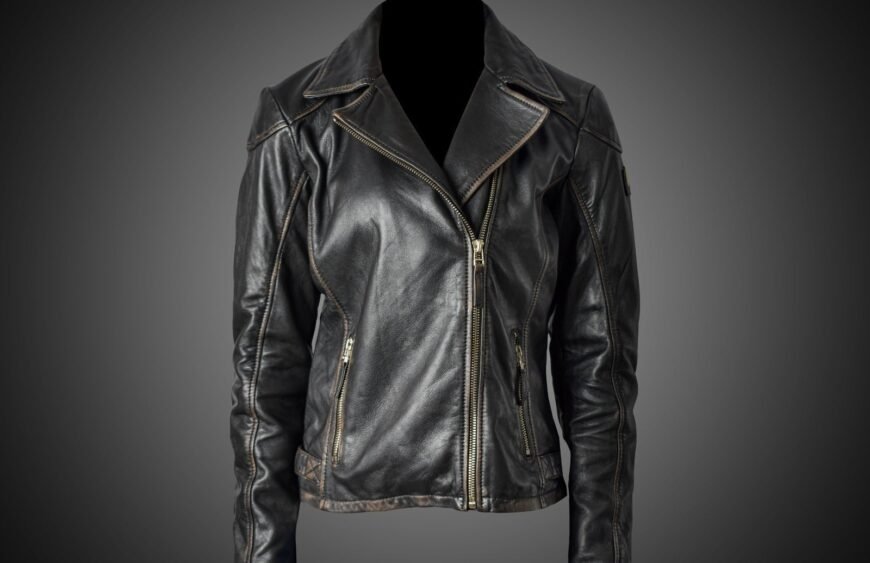Sustainable Leather: What It Means for Your Gear Hikes Team Purchase
Sustainability is a growing concern for many consumers, and at Gear Hikes Team, we’re committed to providing eco-friendly leather products. But what does “Sustainable-Leather” mean?
1. Ethical Sourcing
Sustainableleather is ethically sourced, meaning that the hides come from animals raised for other purposes, like food production. Gear Hikes Team partners with tanneries that prioritize responsible sourcing.
2. Eco-Friendly Tanning
Traditional tanning can involve harmful chemicals. However, Gear Hikes Team is shifting toward more eco-friendly tanning methods, such as vegetable tanning, which reduces the environmental impact.
Understanding Ethical Sourcing of Leather
Ethical sourcing of leather is an essential practice that emphasizes the responsible procurement of animal-derived materials, aligning with principles of sustainability and humane treatment. Companies like Gear Hikes are at the forefront of this movement, ensuring that the leather utilized in their products originates from animals raised primarily for food production rather than for their hides or skins. This approach not only respects animal welfare but also minimizes the environmental impact associated with leather production.
At the heart of ethical leather sourcing is the commitment to transparency and traceability. Gear Hikes actively collaborates with tanneries that adhere to rigorous ethical standards, thus ensuring that the leathers they use are sourced responsibly. By partnering with suppliers who share their values, they promote practices that prevent any animal from being harmed solely for the purpose of producing leather goods. This not only supports animal welfare but also encourages a more sustainable agricultural system where every part of the animal is utilized, reducing waste in the supply chain.
Moreover, the importance of responsible sourcing extends beyond just animal welfare; it encompasses environmental concerns as well. Traditional leather production can have detrimental effects on the environment, including chemical pollution and excessive water use. However, by implementing eco-friendly practices and ensuring that leather is sourced from ethical farms, Gear Hikes demonstrates an unwavering commitment to sustainability, aligning with consumer demand for products that are both eco-conscious and ethically made.
In an age where consumers are increasingly aware of the ramifications of their purchasing choices, understanding the nuances of ethical leather sourcing becomes vital. By choosing responsibly sourced materials, Gear Hikes not only aligns with ethical standards but also paves the way for a more responsible industry, ultimately benefiting animals, consumers, and the planet alike.
Eco-Friendly Tanning Practices
Traditional leather tanning methods have long been associated with various harmful chemicals, posing significant threats to both human health and the environment. Conventional tanning processes often employ toxic substances such as chromium salts, which, when inadequately managed, can leach into soil and water systems, causing pollution and degradation of local ecosystems. Furthermore, the wastewater generated from these processes can be detrimental to aquatic life, highlighting the urgent need for sustainable alternatives in leather production.
In response to these concerns, Gear Hikes has committed to utilizing innovative eco-friendly tanning practices that drastically reduce environmental impacts. One of the standout methods adopted by the company is vegetable tanning. This traditional technique, dating back centuries, utilizes natural materials such as tree bark, leaves, and fruits to extract tannins, the chemical compounds responsible for preserving leather. By relying on biodegradable ingredients, Gear Hikes minimizes the negative repercussions typically associated with conventional tanning.
Vegetable tanning not only lessens the environmental footprint of leather production but also enhances the quality and longevity of the final product. This process allows the leather to retain its natural characteristics, developing a rich patina over time, which many consumers find appealing. Additionally, the durability afforded by vegetable tanning ensures that products can endure prolonged usage, often leading to a longer lifecycle and reducing overall waste.
Through these sustainable practices, Gear Hikes demonstrates a commitment to ethical leather sourcing that balances consumer needs with environmental stewardship. By prioritizing eco-friendly tanning methods, the company exemplifies how innovative approaches can mitigate the adverse effects of leather production, making strides toward a more sustainable future.
The Importance of Sustainable Leather
The leather industry has long faced criticism due to its environmental impact, which includes deforestation, water pollution, and greenhouse gas emissions. As consumers become increasingly aware of these issues, the demand for sustainable leather alternatives has surged. Sustainable leather is not merely about the material itself; it encompasses practices that minimize harm to the environment and promote ethical treatment of animals. By choosing products made from sustainable leather, consumers can drive positive change within the industry while supporting brands that prioritize responsible sourcing.
One significant aspect of sustainable leather sourcing is the focus on the entire supply chain. This includes animal husbandry that prioritizes humane treatment, along with sustainable farming practices that mitigate environmental impact. Brands such as Gear Hikes embody this philosophy by ensuring that their leather is sourced from responsible suppliers who adhere to strict environmental and ethical standards. This commitment to sustainability creates a ripple effect, where consumer choices can influence producers to adopt better practices, ultimately leading to a transformation in the industry as a whole.
Moreover, the shift toward sustainable leather is aligned with a broader movement towards ethical consumerism. Individuals now routinely consider the ecological footprint of their purchases, prompting brands to innovate and offer more eco-friendly options. Leather products made from recycled materials, plant-based alternatives, and those utilizing vegetable tanning processes are examples of this innovation. Consequently, choosing sustainable leather fosters a culture of accountability where consumers feel empowered to support brands that contribute positively to the environment.
Incorporating sustainable leather into everyday consumer choices is essential not only for preserving natural resources but also for supporting ethical practices in the leather industry. By making informed decisions, consumers play a crucial role in promoting sustainability, ultimately leading to a healthier planet for future generations.
Supporting Ethical Practices with Gear Hikes
In today’s increasingly conscientious marketplace, consumers possess the power to influence ethical practices through their purchasing decisions. One of the most effective ways to support ethical leather sourcing is by choosing companies that prioritize transparency and sustainable practices, such as Gear Hikes. By investing in brands that uphold ethical standards, buyers not only contribute to responsible sourcing but also encourage a shift within the fashion industry towards more sustainable practices.
Gear Hikes stands as a beacon for consumers who value ethical leather products. The company’s commitment to transparency within its supply chain is foundational to its business model. This transparency ensures that customers are fully informed about the origins and processing of the leather used in their goods. Transparency is critical as it allows consumers to trace the product from its inception, discerning whether the leather was sourced from suppliers who adhere to ethical and environmentally responsible practices.
Moreover, Gear Hikes actively partners with artisanal tanneries that prioritize environmentally friendly methods. These collaborations not only support traditional craftsmanship but also embody the company’s respect for both people and the planet. By choosing to purchase from Gear Hikes, consumers play a vital role in supporting documentary practices, which often means that the leather is extracted without deforestation or exploitation of workers. This conscious consumerism fosters an ethical loop that diminishes the adverse impacts commonly associated with leather production.
In an industry often marred by opacity regarding sourcing practices, Gear Hikes redefines standards by encouraging shoppers to make informed choices. With the proliferation of brands that operate transparently and uphold ethical practices, consumers have a unique opportunity to align their values with their purchases, paving the way for a more sustainable future in ethical leather sourcing.
Conclusion
As we reflect on the journey of ethical leather sourcing with Gear Hikes, it becomes increasingly clear that the principles of quality and sustainability are inextricably linked. Gear Hikes stands out not only for offering high-quality leather products but also for championing responsible practices within the leather industry. The commitment to ethical sourcing provides consumers with the assurance that their purchases are contributing to a more sustainable future.
The rigorous selection process for leather materials ensures that only the finest resources are utilized. This dedication to quality means that products are not only durable and stylish but also crafted with respect for people and the planet. Gear Hikes prioritizes transparency, allowing customers to understand the sourcing process and appreciate the ethical implications of their purchases.
Moreover, supporting brands like Gear Hikes plays a crucial role in promoting sustainable practices across the industry. By choosing ethical leather products, consumers send a powerful message that they value sustainability and demand responsible production methods. This shift in consumer behavior encourages other brands to adopt similar practices, fostering a collective movement toward ethical responsibility.
It is essential to recognize the impact of individual choices on the environment. When consumers opt for products that are sustainably produced, they contribute to the reduction of waste, the preservation of natural resources, and the welfare of communities involved in the production process. Thus, purchasing from Gear Hikes goes beyond mere consumption; it represents a commitment to making informed and responsible decisions.
In conclusion, the synergy between quality and sustainability is pivotal in the leather industry. By supporting Gear Hikes, consumers can take pride in knowing that they are not only acquiring superior products but are also playing an integral role in promoting ethical practices and a sustainable future.
46 MOTORCYCLE LEATHER RACING JACKET
Adrenaline Rush Moto America 2025 Motorcycle Leather Racing Jacket
Adrenaline Rush MotoGP 2025 Motorcycle Leather Racing Jacket
AdventureMaster Dakar Rally 2025 Motorcycle Leather Jacket
Apex Racer MotoGP 2025 Motorcycle Leather Jacket
Apex Rider Superbike World Championship 2025 Leather Jacket
APRILIA BLACK MOTORCYCLE LEATHER RACING JACKET
APRILIA BLACK KNIGHT MOTORCYCLE LEATHER RACING JACKET
APRILIA BLACK MEN MOTORCYCLE LEATHER RACING JACKET
Read More: Leather Tanning Explained: Understanding the Process























